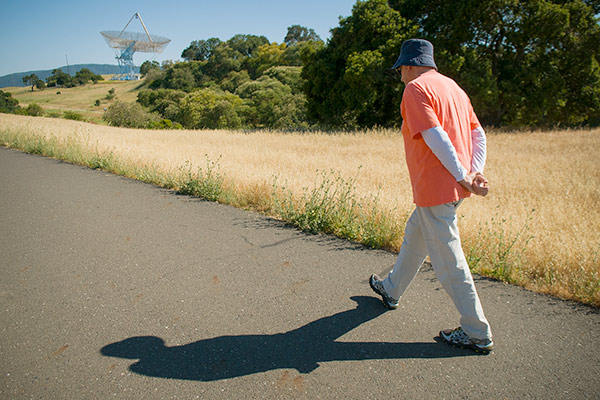(单词翻译:单击)
Being a slow walker doesn't just signify you enjoy a leisurely stroll. According to new research, walking with a slow gait could be a symptom of significant deficits in physical and cognitive health.
走路慢不仅仅代表你喜欢悠闲漫步。新的研究显示走路慢可能暗示你身体和认知健康方面出现严重缺陷。
New findings from a longitudinal study of just over 900 New Zealanders that began back in the 1970s has found that people in their 40s who walk with a slow gait are more likely to show signs of accelerated biological ageing and compromised brain integrity.
20世纪70年代就开始了针对900多个新西兰人进行的纵向研究,新的研究结果发现40多岁时走路慢的人更可能出现生物老化加速和大脑完整性受损的迹象。
"The thing that's really striking is that this is in 45-year-old people, not the geriatric patients who are usually assessed with such measures," says biomedical researcher Line J.H. Rasmussen from Duke University.
杜克大学的生物医学研究员Line J.H. Rasmussen说:“真正引人注意的是这是在45岁的人群中出现的问题,而不是通常用这些方法进行评估的老年患者。”

Rasmussen and fellow researchers examined participants from the Dunedin Study, an exceptionally long longitudinal health study that began almost five decades ago with a cohort of over 1,000 three-year-olds.
Rasmussen和其他研究人员检查了达尼丁研究的参与者,这一研究是大约50年前开始的耗时特别长的纵向健康研究,研究对象是1000多名三岁的儿童。
In new research assessing the health of 904 of the remaining participants at the age of 45, the team found walking speed at mid-life seems to offer a unique window into life-long ageing processes that go back all the way to childhood.
新研究评估了904位健在的参与者45岁时的健康状况,研究团队发现中年时的走路速度好像提供了一个独特的窗口,让我们得以了解从孩童时期就开始的、伴随我们一生的衰老过程。
"This study covered the period from the preschool years to midlife, and found that a slow walk is a problem sign decades before old age," says Duke psychologist and neuroscientist Terrie E. Moffitt.
杜克大学的心理学家和神经科学家Terrie E. Moffitt说:“这项研究涵盖了学前到中年的阶段,发现走路慢是一个在步入老年前几十年就出现的有问题的迹象。”


